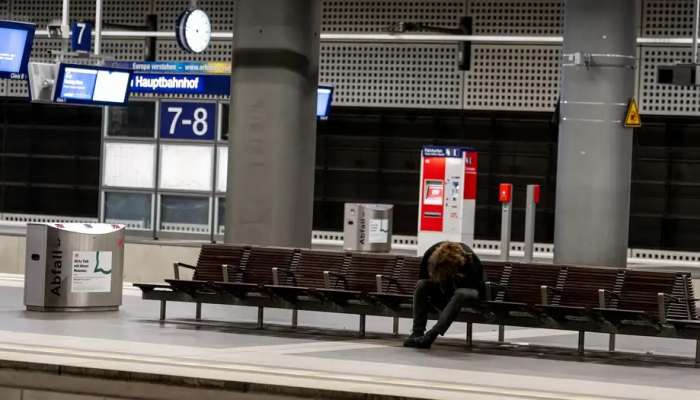
Berlin: Train drivers at Germany's national railway Deutsche Bahn have begun a 24-hour strike, according to the GDL trade union, which represents the drivers.
The nationwide passenger carrier strike started at 10 p.m. (2100 GMT) on Thursday and was set to continue until 10 p.m. on Friday. It is expected to cause thousands of train cancellations, with delays and disruptions set to continue through the weekend.
A freight strike began at 6 p.m. Thursday.
The strike is affecting long-distance and regional trains, as well as commuter trains in the cities of Berlin and Hamburg.
The strike is the fourth to hit Deutsche Bahn this year and comes on the heels of a 20-hour GDL work disruption that forced the cancellation of nearly 80% of all long-distance and regional trains in Germany on November 15-16.
The GDL is seeking a reduction in weekly work from 38 hours to 35 hours with no reduction in pay, a monthly raise of €555 ($600) for employees and a one-time payment of €3,000 to offset inflation.
Deutsche Bahn has flatly rejected any reduction in hours, citing labor shortages, and has instead offered an 11% raise to GDL drivers.
GDL Chairman Claus Weselsky previously announced that negotiations with Deutsche Bahn had collapsed on November 24. Subsequently, the union began a vote among its members on whether to move from temporary "warning strikes" to full-scale strikes. The result of the vote is expected shortly before Christmas.
Deutsche Bahn called the GDL strike "irresponsible and selfish."
"Instead of negotiating and facing up to reality, the train drivers' union is going to strike for unfulfillable demands. This is absolutely unnecessary," said Deutsche Bahn Human Resources Director Martin Seiler.
The move has also been criticized by the German Civil Service Federation (dbb) — a public-sector labor union umbrella group to which the GDL belongs.
The 10,000-member strong GDL is the smaller of two unions representing Deutsche Bahn employees, but it wields outsized leverage as it represents train drivers.